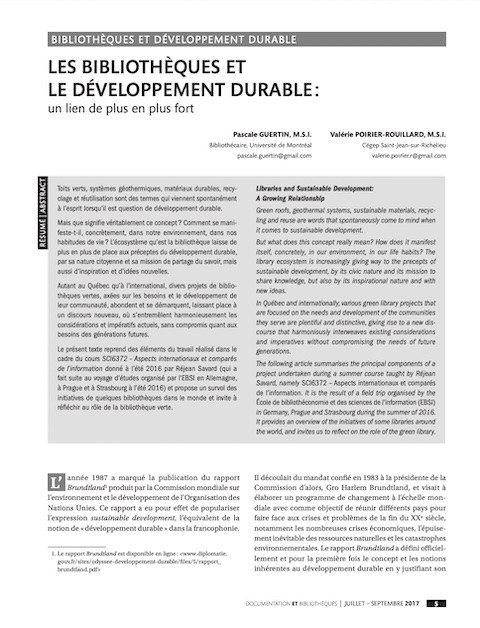
GCED Basic Search Form
Quick Search
You are here
Resources

Green roofs, geothermal systems, sustainable materials, recycling and reuse are words that spontaneously come to mind when it comes to sustainable development.
But what does this concept really mean? How does it manifest itself, concretely, in our environment, in our life habits? The library ecosystem is increasingly giving way to the precepts of sustainable development, by its civic nature and its mission to share knowledge, but also by its inspirational nature and with new ideas.
In Québec and internationally, various green library projects that are focused on the needs and development of the communities they serve are plentiful and distinctive, giving rise to a new discourse that harmoniously interweaves existing considerations and imperatives without compromising the needs of future generations.
The following article summarises the principal components of a project undertaken during a summer course taught by Réjean Savard, namely SCI6372 – Aspects internationaux et comparés de l’information. It is the result of a field trip organised by the École de bibliothéconomie et des sciences de l’information (EBSI) in Germany, Prague and Strasbourg during the summer of 2016. It provides an overview of the initiatives of some libraries around the world, and invites us to reflect on the role of the green library.
